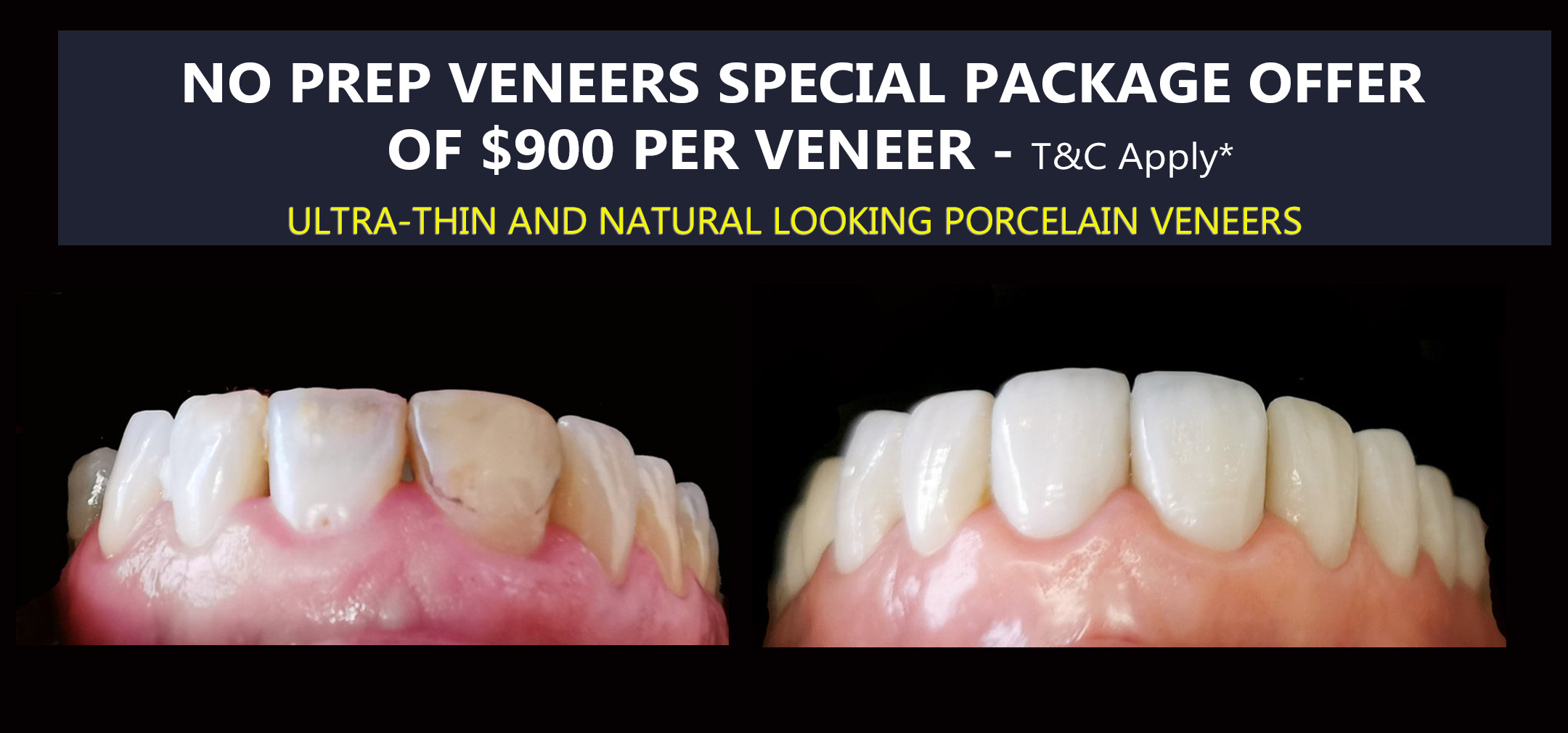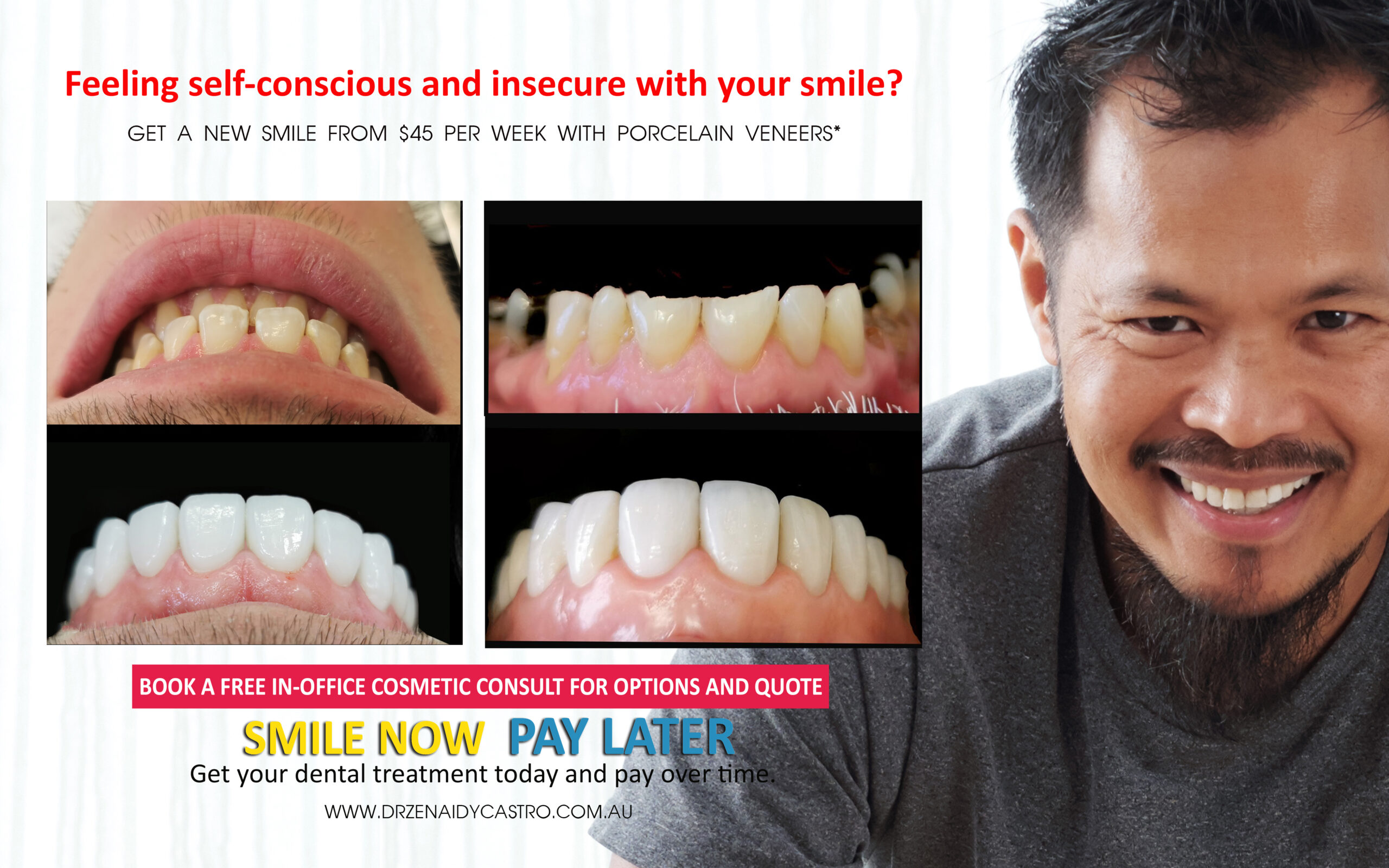

Key Highlights: Dead Tooth – What You Need to Know
✨What Is a Dead Tooth? A dead tooth occurs when the pulp inside becomes damaged or infected, cutting off its blood supply
✨Common Causes: Decay, trauma, or untreated cavities are leading causes of nerve death inside the tooth
✨Early Warning Signs: Discoloration (gray or dark), sensitivity, bad breath, and mild to severe pain
✨Dead Tooth Pain Explained: Pain may stem from nerve inflammation or infection spreading to surrounding tissues
✨When to See a Dentist: Visit immediately if you notice discoloration, swelling, or persistent pain
✨Discoloration and Pain: What It Means – Darkening indicates internal tissue death; pain signals possible infection
✨Treatment Options: Root canal therapy is often preferred to save the tooth; otherwise, extraction may be required
✨Root Canal vs. Extraction: Root canal removes infection while preserving the tooth. Extraction is used when the tooth can’t be saved
✨Lifespan of a Dead Tooth: It may remain for months or years, but leaving it untreated risks serious infection
✨Dead Tooth vs. Infected Tooth: A dead tooth has lost vitality. An infected tooth may still be alive but inflamed or abscessed
✨Don’t Ignore the Signs: Acting early prevents costly treatments and health complications from spreading infection
✨Understanding dead tooth pain can help you seek timely treatment and prevent complications
✨Dead tooth pain treatment in Melbourne and Noble Park North offers comprehensive care for tooth nerve damage
✨Early detection of dead tooth symptoms can save your natural tooth and prevent extraction
✨Professional dental care provides effective pain relief and long-term solutions for dead teeth
✨Modern treatment options include root canal therapy and tooth restoration techniques
✨Prompt treatment prevents infection spread and maintains your oral health
???? Call Vogue Smiles Melbourne and Noble Park today for a comprehensive general and smile makeover treatment — offering competitive pricing, bundled porcelain veneer specials, interest-free dental plans, and Superannuation access assistance.
REQUEST AN ONLINE PERSONALIZED QUOTE ➤
REQUEST FOR A FREE TELECONSULTATION ➤
A dead tooth occurs when the nerve inside your tooth dies due to injury, decay, or infection. The tooth may appear normal from the outside, but the internal tissue has stopped functioning. This condition requires immediate dental attention to prevent complications and preserve your oral health.
When seeking dead tooth pain treatment in Melbourne and Noble Park North, understanding the underlying causes helps you make informed decisions about your dental care. The tooth’s nerve can die gradually or suddenly, depending on the cause and severity of damage.
Common Causes of Dead Teeth
Several factors can lead to tooth nerve death:
- Dental trauma: Sports injuries, accidents, or falls can damage tooth nerves
- Severe tooth decay: Untreated cavities that reach the tooth’s nerve
- Large fillings: Extensive dental work that compromises nerve health
- Repeated procedures: Multiple treatments on the same tooth
- Grinding teeth: Chronic teeth grinding that damages tooth structure
- Gum disease: Advanced periodontal disease affecting tooth roots
DEAD TOOTH SYMPTOMS AND TREATMENT OPTIONS EXPLAINED
Recognizing dead tooth pain symptoms early allows for more effective treatment and better outcomes. Many patients experience varying degrees of discomfort, while others may have no pain at all initially.
Key Symptoms to Watch For
- Persistent pain: Constant aching or throbbing in the affected tooth
- Sensitivity: Increased sensitivity to hot or cold temperatures
- Color changes: Tooth becoming gray, brown, or black
- Bad taste: Unpleasant taste in your mouth
- Swelling: Gum swelling around the affected tooth
- Bad breath: Persistent halitosis despite good oral hygiene
- Loose tooth: The tooth may feel loose or unstable
Professional Treatment Options
Effective dead tooth pain treatment in Melbourne and Noble Park North includes several proven approaches:
- Root canal therapy: Removes dead tissue and saves the natural tooth
- Tooth extraction: Complete removal when saving the tooth isn’t possible
- Dental crown placement: Protects and strengthens treated teeth
- Antibiotic therapy: Treats infection and prevents spread
- Pain management: Immediate relief while planning treatment
HOW TO IDENTIFY AND MANAGE A DEAD TOOTH
Early identification of a dead tooth significantly improves treatment success rates. Many patients don’t realize their tooth nerve has died until symptoms become severe or noticeable discoloration occurs.
Self-Assessment Signs
You can monitor your teeth for these warning signs:
- Pain patterns: Sharp pain when biting or chewing
- Temperature sensitivity: Lingering pain after hot or cold exposure
- Visual changes: Darkening or discoloration of the tooth
- Gum inflammation: Redness or swelling around the tooth base
- Mobility: The tooth feels loose when touched with your tongue
Immediate Management Steps
While waiting for professional treatment, these steps can help manage dead tooth pain:
- Over-the-counter pain relief: Use ibuprofen or acetaminophen as directed
- Saltwater rinses: Rinse with warm salt water several times daily
- Avoid extreme temperatures: Stay away from very hot or cold foods
- Soft diet: Eat soft foods to avoid pressure on the affected tooth
- Good oral hygiene: Continue brushing and flossing gently
DEAD TOOTH PAIN: CAUSES, RELIEF, AND TREATMENT GUIDE
Understanding the comprehensive approach to dead tooth pain helps you make informed decisions about your treatment. Professional dental care in Melbourne CBD and Noble Park North provides personalized solutions based on your specific condition.
Pain Relief Strategies
Effective pain management involves multiple approaches:
- Prescription medications: Stronger pain relievers for severe discomfort
- Topical treatments: Numbing gels for temporary relief
- Cold compress: Apply ice to reduce swelling and numb pain
- Elevation: Keep your head elevated while sleeping
- Stress management: Reduce stress to minimize pain perception
Long-term Treatment Planning
Successful dead tooth pain treatment in Melbourne and Noble Park North requires comprehensive planning:
- Diagnostic imaging: X-rays to assess tooth and bone health
- Treatment timeline: Scheduled appointments for optimal healing
- Follow-up care: Regular monitoring to ensure treatment success
- Preventive measures: Strategies to protect remaining teeth
- Restoration planning: Crowns or other restorations to strengthen treated teeth
DEAD TOOTH: WHEN TO SEE A DENTIST AND WHAT TO EXPECT
Timing is crucial when dealing with a dead tooth. Delaying treatment can lead to serious complications including infection, abscess formation, and damage to surrounding teeth and bone.
Emergency Warning Signs
Seek immediate dental care if you experience:
- Severe pain: Intense, throbbing pain that doesn’t respond to medication
- Facial swelling: Swelling that affects your face, jaw, or neck
- Fever: High temperature indicating possible infection
- Difficulty swallowing: Swelling that affects your ability to swallow
- Foul discharge: Pus or bad-tasting fluid from the tooth area
What to Expect During Your Visit
Your dental appointment for dead tooth pain will typically include:
- Comprehensive examination: Visual inspection and gentle probing
- Digital X-rays: Detailed images to assess tooth and bone health
- Vitality testing: Tests to confirm nerve death
- Treatment discussion: Review of all available options
- Pain management: Immediate relief measures
- Appointment scheduling: Planning for follow-up treatment
DEAD TOOTH DISCOLORATION AND PAIN: WHAT IT MEANS
Tooth discoloration often accompanies dead tooth pain and serves as a visible indicator of nerve damage. Understanding the connection between color changes and pain helps you recognize when professional treatment is necessary.
Types of Discoloration
Dead teeth can display various color changes:
- Gray discoloration: Early sign of nerve death
- Brown coloring: Progressive tissue breakdown
- Black appearance: Advanced nerve death and decay
- Yellow-brown staining: Blood breakdown products
- Translucent appearance: Loss of tooth vitality
Pain and Discoloration Connection
The relationship between pain and color changes varies:
- Initial stages: Pain may precede visible color changes
- Progressive phase: Discoloration increases as nerve tissue breaks down
- Advanced stage: Pain may decrease while discoloration becomes more pronounced
- Infection phase: Return of severe pain with darker coloration
ROOT CANAL OR EXTRACTION? TREATING A DEAD TOOTH
Choosing between root canal therapy and extraction depends on several factors. Your dentist will evaluate your specific situation to recommend the most appropriate dead tooth pain treatment in Melbourne and Noble Park North.
Root Canal Therapy Benefits
Root canal treatment offers several advantages:
- Tooth preservation: Saves your natural tooth structure
- Maintains function: Preserves normal chewing and speaking
- Cost-effective: Less expensive than extraction and replacement
- Prevents shifting: Maintains proper tooth alignment
- High success rate: Over 90% success rate with proper care
When Extraction is Necessary
Extraction may be recommended when:
- Extensive damage: Tooth structure is too compromised to save
- Vertical fractures: Cracks that extend through the tooth root
- Severe bone loss: Insufficient bone support for the tooth
- Repeated treatment failure: Previous root canal treatments have failed
- Economic considerations: Cost of treatment versus replacement
HOW LONG CAN A DEAD TOOTH STAY IN YOUR MOUTH?
The timeline for a dead tooth varies significantly depending on individual factors and whether treatment is sought. Understanding the progression helps you make informed decisions about your dental care.
Factors Affecting Timeline
Several factors influence how long a dead tooth can remain:
- Cause of death: Trauma versus decay affects progression
- Oral hygiene: Good care can slow complications
- Immune system: Strong immunity may delay infection
- Tooth location: Back teeth may have different timelines
- Age factors: Younger patients may experience faster progression
Potential Complications
Leaving a dead tooth untreated can lead to:
- Abscess formation: Pus-filled infection at the tooth root
- Bone loss: Deterioration of surrounding bone tissue
- Spread of infection: Bacteria affecting nearby teeth and tissues
- Systemic complications: Infection entering the bloodstream
- Facial swelling: Severe inflammation affecting appearance
DEAD TOOTH VS. INFECTED TOOTH: KEY DIFFERENCES
Understanding the difference between a dead tooth and an infected tooth helps you communicate symptoms effectively to your dentist. Both conditions require professional treatment but may have different approaches.
Dead Tooth Characteristics
A dead tooth typically presents with:
- No response to temperature: Lack of sensitivity to hot or cold
- Gradual discoloration: Slow color changes over time
- Dull pain: Constant, aching discomfort
- No pus initially: Absence of discharge in early stages
- Stable condition: Symptoms may remain unchanged for periods
Infected Tooth Signs
An infected tooth often shows:
- Acute pain: Sharp, throbbing pain that worsens
- Swelling: Rapid onset of facial or gum swelling
- Fever: Elevated body temperature
- Pus discharge: Visible drainage from the tooth area
- Rapid progression: Symptoms worsen quickly
DEAD TOOTH: EARLY WARNING SIGNS YOU SHOULDN’T IGNORE
Recognizing early warning signs of a dying tooth can prevent dead tooth pain and save your natural tooth. Early intervention significantly improves treatment outcomes and reduces the need for complex procedures.
Subtle Early Signs
Watch for these early indicators:
- Lingering sensitivity: Pain that continues after temperature exposure ends
- Slight discoloration: Barely noticeable color changes
- Intermittent pain: Occasional discomfort that comes and goes
- Gum tenderness: Mild soreness around the tooth base
- Metallic taste: Unusual taste in your mouth
Progressive Warning Signs
As the condition advances, you may notice:
- Increased sensitivity: Growing response to temperature changes
- Visible color changes: Noticeable darkening of the tooth
- Persistent pain: Constant low-level discomfort
- Gum changes: Swelling or color changes in surrounding gums
- Bad breath: Persistent halitosis despite good oral hygiene
PREVENTION AND MAINTENANCE STRATEGIES
Preventing dead teeth is always preferable to treating them. Good oral hygiene and regular dental care significantly reduce your risk of developing dead tooth pain.
Daily Prevention Habits
- Proper brushing: Brush twice daily with fluoride toothpaste
- Regular flossing: Clean between teeth daily to prevent decay
- Mouthwash use: Antibacterial rinse to reduce harmful bacteria
- Healthy diet: Limit sugary and acidic foods and drinks
- Protective gear: Wear mouthguards during sports activities
Professional Preventive Care
Regular professional care in Melbourne CBD and Noble Park North includes:
- Routine checkups: Every six months for early detection
- Professional cleanings: Remove plaque and tartar buildup
- Dental X-rays: Detect problems not visible during examination
- Fluoride treatments: Strengthen tooth enamel
- Dental sealants: Protect vulnerable tooth surfaces
RECOVERY AND AFTERCARE
Successful recovery after dead tooth pain treatment in Melbourne and Noble Park North depends on following proper aftercare instructions. Your dentist will provide specific guidelines based on your treatment type.
Post-Treatment Care
- Medication compliance: Take prescribed antibiotics and pain medications as directed
- Gentle oral hygiene: Maintain cleanliness while avoiding treated area initially
- Dietary modifications: Stick to soft foods during initial healing
- Activity restrictions: Avoid strenuous activities that could cause bleeding
- Follow-up appointments: Attend all scheduled visits for monitoring
Long-term Success Factors
Ensure long-term success with these practices:
- Regular dental visits: Continue routine checkups and cleanings
- Proper oral hygiene: Maintain excellent daily care
- Protective measures: Use mouthguards if you grind your teeth
- Healthy lifestyle: Avoid tobacco and excessive alcohol
- Stress management: Address teeth grinding and jaw clenching
FREQUENTLY ASKED QUESTIONS
How do I know if my tooth is dead or just infected?
A dead tooth typically shows no response to temperature changes and may have gradual discoloration, while an infected tooth usually causes sharp pain, swelling, and fever. Professional dental examination and testing are needed for accurate diagnosis.
Can a dead tooth cause pain if the nerve is dead?
Yes, a dead tooth can still cause pain due to pressure buildup, infection in surrounding tissues, or inflammation of the ligament holding the tooth. The pain may be different from typical tooth pain but can still be significant.
How long does dead tooth pain last without treatment?
Dead tooth pain without treatment can last indefinitely and typically worsens over time. The pain may fluctuate but usually increases as complications develop, including infection and abscess formation requiring emergency treatment.
Is root canal treatment painful for a dead tooth?
Root canal treatment for a dead tooth is typically less painful than for a living tooth because the nerve is already dead. Modern techniques and anesthesia make the procedure comfortable, with most patients experiencing minimal discomfort.
What happens if I ignore a dead tooth?
Ignoring a dead tooth can lead to serious complications including abscess formation, bone loss, infection spread to other teeth, facial swelling, and potentially life-threatening systemic infection. Immediate professional treatment is essential.
How much does dead tooth treatment cost in Melbourne?
Dead tooth treatment costs in Melbourne vary depending on the procedure needed. Root canal therapy typically ranges from $800-$1,500, while extraction costs $200-$600. Dental insurance may cover a portion of treatment costs.
Can I prevent my tooth from dying after an injury?
Immediate dental care after tooth injury can sometimes prevent nerve death. Seek emergency dental treatment within 24 hours of injury for the best chance of saving the tooth nerve and avoiding future complications.
Will a dead tooth eventually fall out on its own?
A dead tooth may eventually become loose and fall out due to bone loss and tissue breakdown, but this process can take months or years. Professional treatment is safer and prevents complications that can affect overall health.
How long does recovery take after dead tooth treatment?
Recovery time varies by treatment type. Root canal therapy typically requires 1-2 weeks for initial healing, while extraction sites heal in 2-4 weeks. Complete healing and restoration may take several months depending on the procedure.
Can children get dead teeth from trauma?
Yes, children can develop dead teeth from trauma, especially during sports or playground accidents. Children’s teeth may have better healing potential than adult teeth, but immediate professional evaluation is crucial for proper treatment.
Are there natural remedies for dead tooth pain?
While natural remedies like saltwater rinses, clove oil, and over-the-counter pain relievers may provide temporary relief, they cannot treat the underlying problem of a dead tooth. Professional dental treatment is essential to prevent serious complications and provide lasting pain relief.
What’s the success rate of saving a dead tooth?
Root canal treatment has a 85-97% success rate for saving dead teeth when performed by experienced dentists. Success depends on factors like tooth condition, patient health, and proper aftercare following treatment.
Can stress cause tooth nerve death?
Chronic stress can contribute to tooth nerve death through teeth grinding, jaw clenching, and reduced immune function. Stress management, mouthguards, and regular dental care help prevent stress-related tooth damage and nerve death.
How do dentists test if a tooth is dead?
Dentists use vitality tests including cold tests, electric pulp tests, and thermal tests to determine if tooth nerves are alive. X-rays and visual examination help confirm diagnosis and plan appropriate treatment.
Is tooth extraction always necessary for dead teeth?
Tooth extraction isn’t always necessary for dead teeth. Many dead teeth can be successfully treated with root canal therapy, allowing you to keep your natural tooth with proper restoration and ongoing care.
CHOOSING THE RIGHT DENTAL CARE
Selecting the right dental practice for dead tooth pain treatment in Melbourne and Noble Park North ensures you receive quality care and optimal outcomes. Look for experienced professionals who understand the complexities of treating dead teeth.
What to Look for in a Dental Practice
- Advanced technology: Digital X-rays and modern diagnostic equipment
- Experienced dentists: Specialists trained in endodontic procedures
- Emergency availability: Access to urgent care when needed
- Comprehensive services: Full range of treatment options under one roof
- Patient education: Clear explanations of treatment options and procedures
- Comfortable environment: Modern facilities designed for patient comfort
Questions to Ask Your Dentist
When seeking treatment for dead tooth pain, ask these important questions:
- Treatment options: What are all available treatment options for my specific case?
- Success rates: What is the expected success rate for my recommended treatment?
- Recovery time: How long will healing take and what can I expect?
- Cost breakdown: What are the total costs including follow-up care?
- Alternative treatments: Are there other options if the first treatment fails?
- Long-term prognosis: How long should the treated tooth last?
ADVANCED TREATMENT OPTIONS
Modern dentistry offers advanced treatment options for dead tooth pain treatment in Melbourne and Noble Park North. These innovative approaches can improve outcomes and reduce treatment time while enhancing patient comfort.
Regenerative Endodontics
This cutting-edge approach aims to regenerate tooth tissue:
- Stem cell therapy: Uses the body’s natural healing mechanisms
- Tissue engineering: Promotes new tissue growth within the tooth
- Minimal intervention: Less invasive than traditional root canal treatment
- Better outcomes: Potential for complete tooth restoration
- Future potential: Ongoing research shows promising results
DENTAL EMERGENCIES AND DEAD TEETH
Dead teeth can create dental emergencies that require immediate attention. Understanding when to seek emergency care can prevent serious complications and potentially save your tooth.
True Dental Emergencies
Seek immediate emergency dental care for:
- Severe facial swelling: Swelling that affects breathing or swallowing
- High fever: Temperature above 101°F with dental pain
- Uncontrolled bleeding: Continuous bleeding from the tooth area
- Difficulty opening mouth: Lockjaw or limited mouth opening
- Spreading infection: Red streaks extending from the tooth area
Emergency First Aid
While waiting for emergency dental care:
- Pain management: Take over-the-counter pain relievers as directed
- Cold compress: Apply ice to reduce swelling for 15-20 minutes
- Saltwater rinse: Gently rinse with warm salt water
- Stay upright: Keep your head elevated to reduce blood flow
- Avoid irritants: Stay away from hot, cold, or spicy foods
- Don’t delay: Seek professional care as soon as possible
CONCLUSION: TAKING ACTION AGAINST DEAD TOOTH PAIN
Dead tooth pain is a serious dental condition that requires prompt professional attention. Understanding the causes, symptoms, and treatment options empowers you to make informed decisions about your oral health and seek appropriate care when needed.
Whether you’re experiencing early warning signs or dealing with advanced symptoms, dead tooth pain treatment in Melbourne and Noble Park North offers comprehensive solutions to address your specific needs. From conservative root canal therapy to advanced regenerative treatments, modern dentistry provides effective options to save your natural teeth and restore your oral health.
Remember that early intervention is key to successful treatment outcomes. Don’t ignore persistent tooth pain, discoloration, or other warning signs. Schedule a consultation with a qualified dental professional to discuss your symptoms and explore treatment options that can relieve your pain and preserve your smile.
Your oral health impacts your overall well-being, quality of life, and confidence. Taking action against dead tooth pain today can prevent serious complications tomorrow and help you maintain a healthy, functional smile for years to come. Trust in professional dental care and modern treatment techniques to address your dead tooth pain effectively and restore your oral health.
Book online anytime:
Request a free teleconsult:
 Review the important terms and conditions that apply to this offer.
Review the important terms and conditions that apply to this offer.

Don’t Ignore Dead Tooth Pain – Get Emergency Dental Care Now
Protect your smile today and save on costly treatments tomorrow. Book your Dead tooth Treatment with our caring Noble Park team now—personalized care that fits your lifestyle and budget awaits!
Book Your Emergency Consultation
???? Call (03) 9629 7664 | 0413 014 122
REQUEST AN ONLINE PERSONALIZED QUOTE ➤
REQUEST FOR A FREE TELECONSULTATION ➤


Disclaimer:
The information on this website is for information purposes only. Is not a substitute for a proper professional care and advice. Each patient’s outcomes, risks, potential complications, and recovery differ. Any dental procedure, minor or major, carries risks, some minor and some serious. Before and after images seen on our Social Media and website pages are our actual patient and have been published/posted with our patients’ permission. All of our patients photos are subject to Copyrights protection. We are strong believers in responsible aesthetics. Every cosmetic, medical, or dental procedure comes with its own set of risks and benefits. Cosmetic Dentistry results will vary from patient to patient. Call our office and book for an actual in-office consultation for us to assess if you are a good candidate for a particular treatment. All of our Specials and packages posted on this site are subject to terms, conditions and availability. The exact fee for a particular cosmetic procedure will be determined after a preliminary assessment distinguishing your unique personal needs and the type of work needed. The prices mentioned on any of our website as well as any mentioned payment plan by a third party source, are just a guide and is subject to change. Call the third party financing providers or visit their website for more info. Please call the office on 9629-7664 for further queries or clarification.




